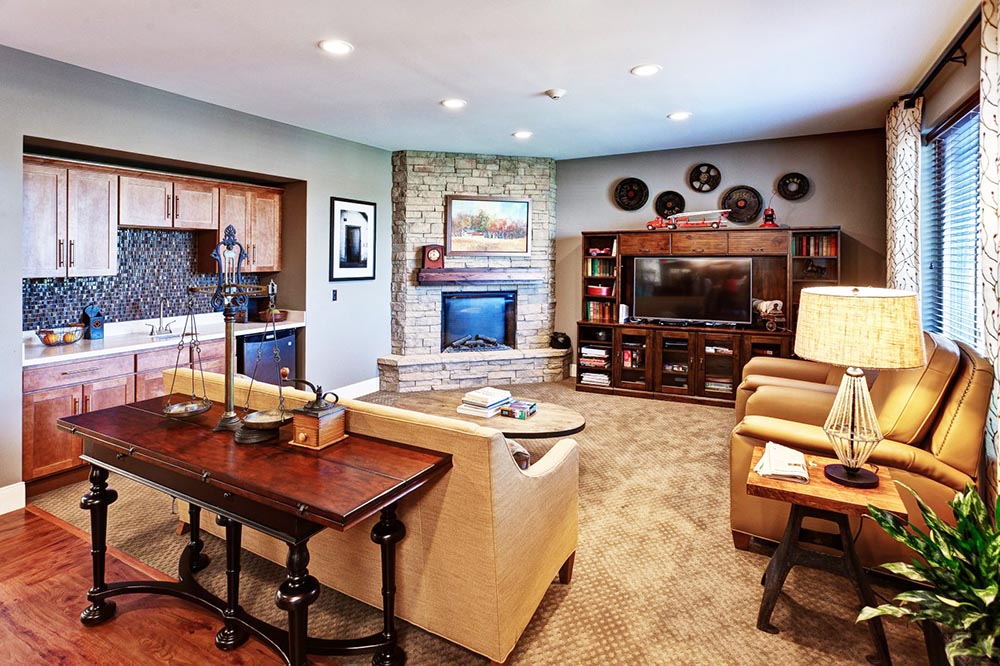The Piper Assisted Living And Memory Support In Kansas City Has Added Memory Care Lite As An Option For Dementia Care.
A community in Kansas City has created a new level of care, called Memory Care Lite, to provide the optimum environment and support so residents with early stages of dementia can live their most productive and fulfilling lives.
The unique Household design at the Piper creates the perfect opportunity to add another option. With only 20 people living in a household, there is the opportunity to keep those with the earliest diagnosis and the highest function together.
A Little Background…
Many Senior healthcare professionals know that the proper level of care for an individual should be based on each of their unique needs and strengths.
Historically, there was little difference in what types of care were available. Not that long ago, if an elder needed care of any sort, the only choice was a nursing home. You would find very frail elders sharing space with seniors who were still relatively healthy, but could not live alone because of declining memory.
Before Memory Support was a concept of care, healthy residents who had memory deficit were cared for in the same facility as those who were frail but were completely cognizant. The memory care residents needed more activity and stimulation for their quality of life, while the truly fragile residents needed assistance with hygiene, eating, and various nursing needs.
In those early days, there was no specialized training for caring for those with Alzheimer’s or other types of dementia. It did not create a healthy, supportive environment for either type of resident because their needs were so different.
The early efforts to care for patients with severe brain failure was heavy sedation and restraints. New solutions were desperately needed.
Memory Care Began In Earnest In The Early 1980s.
Stanford Health Center for Memory Disorders says, “Research in the last 30 years has led to a greatly improved understanding of what dementia is, who gets it, and how it develops and affects the brain. This work is beginning to pay
off with better diagnostic techniques, improved treatments, and even potential ways of preventing these diseases.
The old hospital model was replaced with Memory Care facilities that were designed to look and feel more home-like.
Staff received specialized training in dementia that was essential for best care practices. With a group of seniors who have dementia, activities could be created to keep them active and engaged. In turn, certain behaviors improved, and residents were happier.
Obviously, those needs can change as the disease progresses. There are many residents with an early dementia diagnosis who are high functioning except for their disorientation and tendency to wander. They can be a danger to themselves when trying to do everyday activities such as preparing food, taking medications, etc. It may become impossible for them to live alone or for a spouse to provide a safe environment 24/7.
In later stages of the disease process, Alzheimer’s and dementia residents may need a great deal of nursing care support. They can become physically impaired, along with their diminished mental capabilities. This can lead to a very high level of care.
The New Piper Household Concept Is Memory Care Lite.
Alzheimer’s and dementia progress in different stages, at different rates. Oftentimes, the only options are Assisted Living or Memory Care. Now, for seniors who fall somewhere in between, there’s an alternative. Memory Care Lite is an option for seniors who need more cognitive support and security than Assisted Living, but their dementia hasn’t progressed to the level of standard Memory Care. Seniors can safely maintain some independence, receive more care and be in the company of others in similar life stages.
With just 20 apartments in the Memory Care Lite Household, residents will find neighbors to connect with and participate in conversations, activities, and stimulating pursuits. This setting could possibly help slow down the progression of the disease by having other high functioning residents with whom to engage.
This model allows caregivers to be creative in customizing the highest level of stimulation and more advanced activities that may not be appropriate for those with advanced dementia.
For questions about Memory Care Lite, contact The Piper today.

